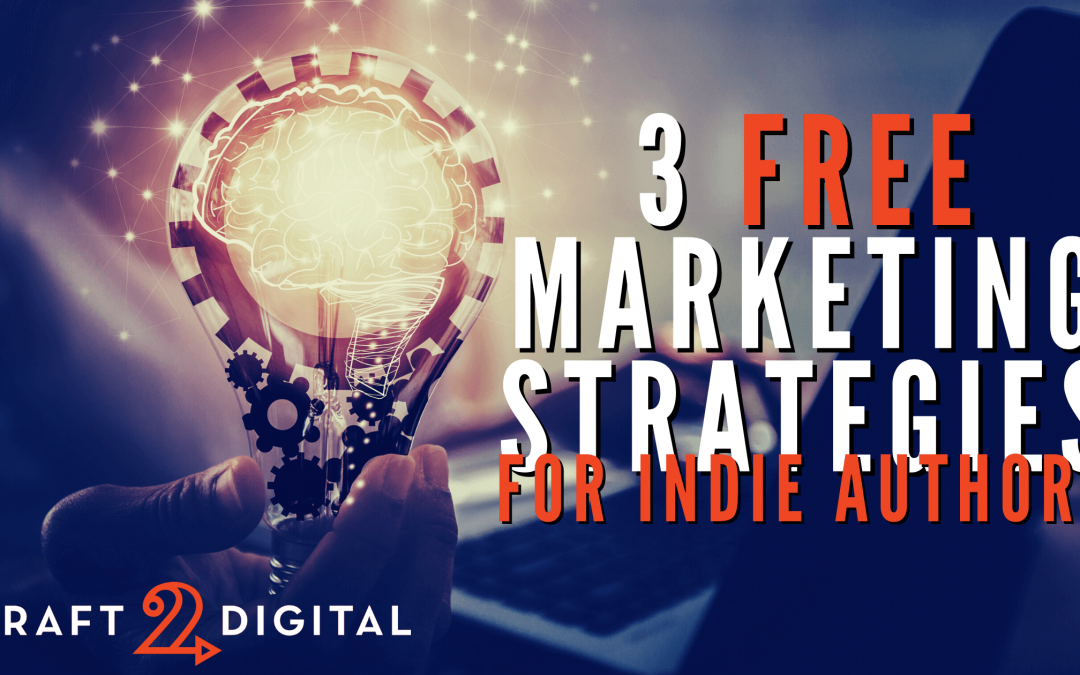When it comes to marketing your work, there’s no shortage of ways to spend money. There are entire books and online courses about how to use Facebook and Amazon ads, and that’s not even touching all the industry-specific places you can get a paid mention. There are more marketing strategies out there than you could try in a lifetime.
It’s a confusing landscape to navigate, especially if you’re an indie author newbie looking to promote your first book. How much should you spend? And which paid ads are most worthwhile?
Paid ads have their place, and we’ll dedicate an entire post to them in the coming weeks.
But you don’t have to spend money to get some excellent traction, especially if you’re just starting out as an indie author.
Here are the best free marketing tips we’ve picked up over the years.
#1: Don’t underestimate the power of personal relationships
Many of the successful writers we’ve interviewed base their marketing strategies on the 1,000 true fans theory.
The underlying premise is a simple one: win the hearts of 1,000 loyal readers, and they will support your work for an entire career. They’ll buy everything you write, tell their family and friends about you, and essentially create a ripple effect on your behalf.
In other words, they’ll provide free marketing.
Author Ernest Dempsey believes that the best marketing is relationships, and he’s not alone.
“The old school ways of a handshake and a clap on the back … that’s the best way to do business. And in this digital age, we’ve kind of lost that a little bit. There’s a million YouTubers, but how engaged are they really with their fans?”
Now, for most authors, it isn’t possible—or even desirable, hot on the heels of COVID-19—to shake hands with 1,000 of your readers.
But the premise holds up even if you only engage from the other side of a screen.
Develop a personal relationship with your readers, and nurture that relationship early and often. Put time and energy into your author platform, and make sure you’re reaching out to your audience (even if it’s tiny) when you have nothing to sell.
Dempsey says, “At the end of the day, a lot of people are still focused on the getting part, which is getting [an email address] so they can extract money from a reader.”
He reminds writers that it’s important to focus on what you’re giving as an author, not what you’re getting.
That’s how to develop 1,000 true fans—and it doesn’t cost a dime.
#2: Write a lead magnet
In the very first episode of Self-Publishing Insiders, BookFunnel’s Damon Courtney made a point of recommending lead magnets as a free marketing tool for new authors.
He even went so far as to say that it’s the first thing you should do.
A lead magnet is essentially a free piece of work that you’ll give away to readers in exchange for their email address. Once they’re on your mailing list, you have a free (or close to free) means of getting in touch with people who have actively expressed an interest in your work.
In the marketing world, that’s like gold. “The best traffic that you could possibly get is always going to be organic traffic,” Courtney says.
So don’t miss opportunities for calls to action. Whether you have one book or a multi-book series, put a blurb in the back that prompts readers to download a free story. Of course, you’ll need their email address to send them that story—so everyone gets something they want.
These kinds of value exchanges, where readers get the benefit of reading your work for free, and you get a free way to market to them, are the best “bang for your buck”—even when the “buck” is your time and energy.
#3: Network
In the “before times,” our biggest recommendation for networking would have been to attend an in-person writing conference or networking event if you possibly could.
We still recommend doing that, if you’re comfortable—these events are coming back slowly in 2021.
But that’s not free, and it’s also not the only way to meet other writers and forge relationships within the community.
How best to do this if you don’t know anyone else in your local area who writes? You guessed it: social media.
Join Facebook groups dedicated to your genre or to writing in general. We highly recommend Craig Martelle and Michael Anderle’s “20 Books to 50k” Facebook group as a place to start.
One caveat before you dive in, though: don’t join groups looking to sell and promote your work. That will probably do more harm than good—and in some cases, will get you ejected before you can even say “lead magnet.”
The goal of joining these groups should be getting to know the readers and writers in your genre. (Back to those personal relationships again.) Be genuine and curious, and you’ll meet great readers and writers while learning a lot.
Used correctly, Facebook groups are an education unto themselves.
Sarah is a freelance writer, full-time nomad, and husky mom. Learn more about her work (and see a picture of her dog) at www.flourishwriting.com, or find her on Facebook at https://www.facebook.com/flourishwriting/.
